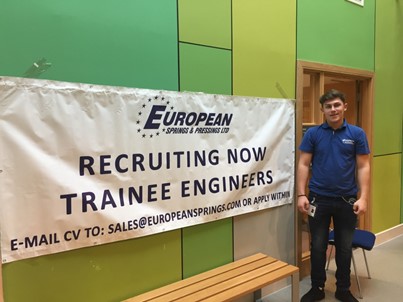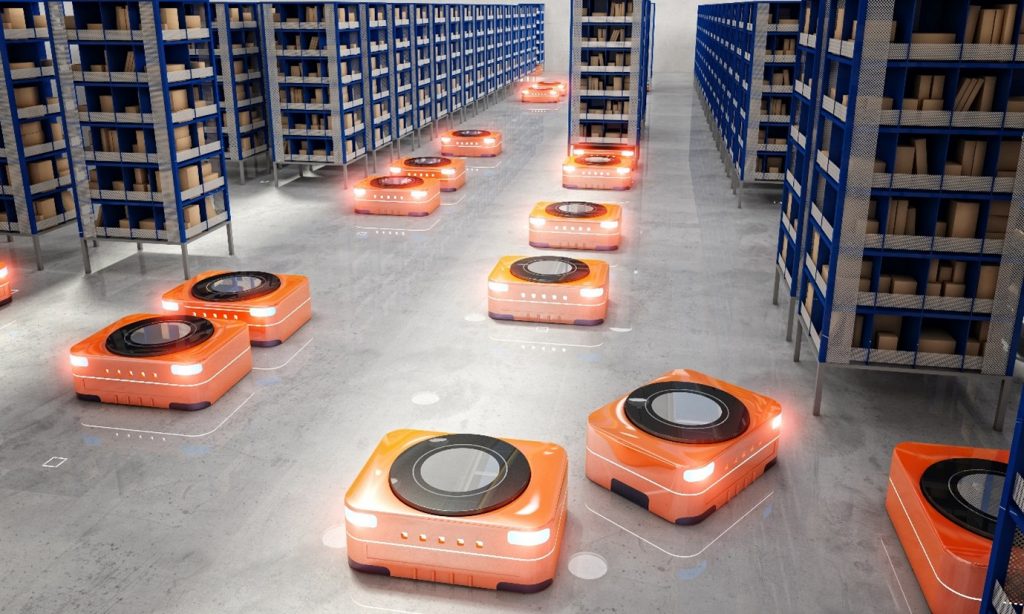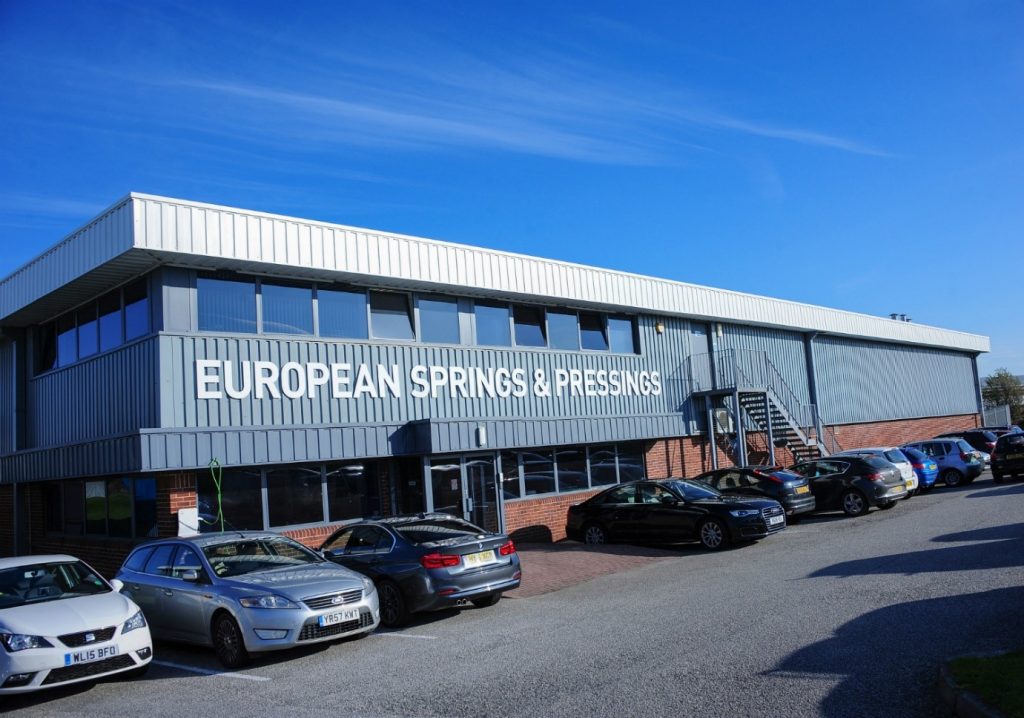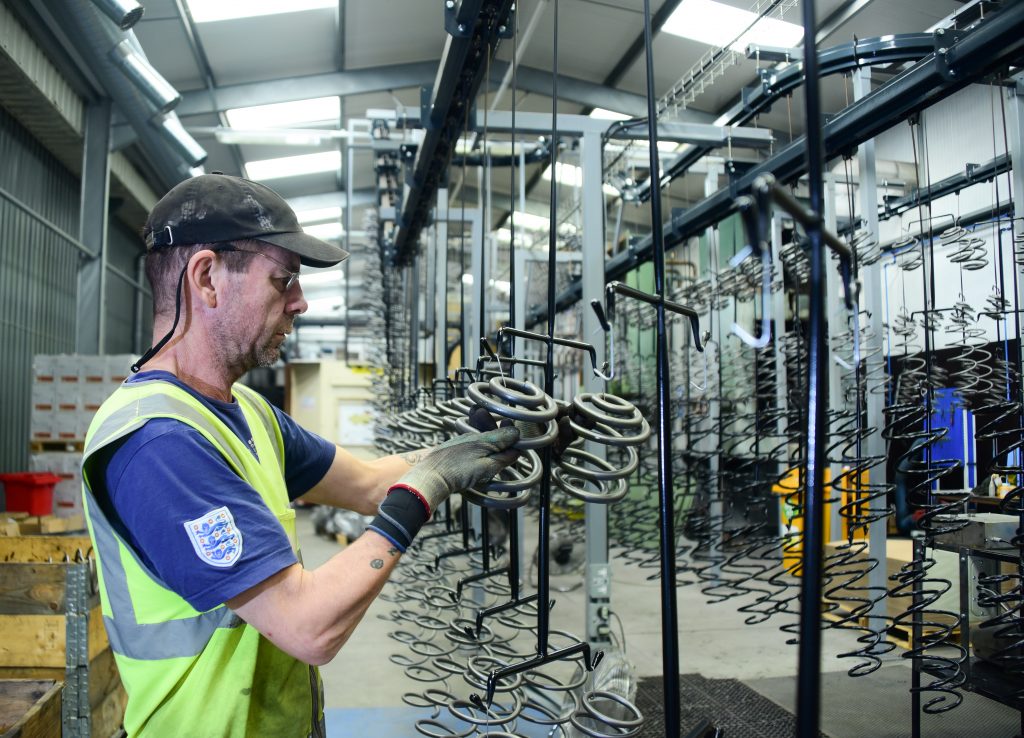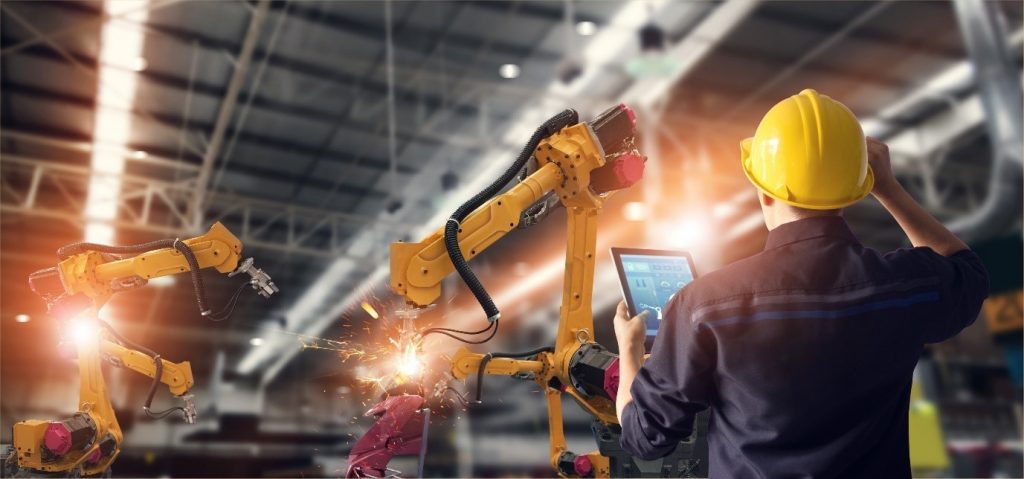As one of the leading spring manufacturers in the UK, and with over 70 years’ experience in the industry, we get asked plenty of questions when it comes to springs! Read on to see the answers to some of the most frequently asked questions that we are commonly asked.
How Do Springs Work?
Springs work by using stored energy when pushed or pulled out of their natural shape.
Springs can store energy, and the tighter a spring is – the more force it will take to deform it. In physics terms, a spring can store potential energy due to its elasticity. The elastic limit is the maximum amount of force that a spring can take before it is permanently deformed.
There are engineering steps that can be taken to increase or decrease a spring’s elastic limit, such as adding more coils to the spring or making the coils tighter.
How Do Compression Springs Work?
Compression springs resist compressive forces as they are applied. When a heavy object or force is applied to the spring, it condenses, and pushes back with equal force until it is eventually released.
They are also sometimes referred to as open-coil helical springs.
Do Springs Wear Out from Being Compressed?
If a spring’s elastic limit is exceeded by using too much force on the spring, then a spring will become deformed and worn out.
Alternatively, your spring might be suffering from spring creep. This refers to when the material slowly deforms over time, but this shouldn’t happen if the spring’s elastic limit is not exceeded. Getting your springs custom made for your application can also help to prevent spring creep.
Do Springs Lose Tension Over Time?
Much like springs that are compressed too far, a spring may become deformed if pressure in excess of the spring’s elastic limit is used. Spring creep is a term that refers to the deformation of a spring over time, and can be avoided by getting your springs custom made to suit your application’s requirements. You can read more about Spring Durability and Fatigue here.
What Is a Torsion Spring?
A torsion spring exerts force proportional to the force being applied, but in the opposite direction, and can be designed to work clockwise or counter-clockwise. They can be designed in a variety of sizes.
What Are Springs Made Of?
Springs can be made out of all kinds of materials, but the material chosen will dictate the boundaries of the elastic limit. Here are some examples of popular spring materials:
- Hardened Steel
- Bronze
- Titanium
- Plastic
Which Type Of Spring Is Right For Me?
Choosing the right spring for you will completely depend on exactly what your requirements are. To ensure you’re getting the right type of spring, we would recommend getting in touch with our experts today via our simple online enquiry form, or by calling the closest European Springs & Pressings facility to you.
What Are Pen Springs Made Of?
A pen spring is usually made from stainless steel. The type of spring used is a compression spring which enables the nib of the pen to retract when it is not in use.
How Do Gas Springs Work?
A gas spring uses compressed gas sealed by a sliding piston to pneumatically store potential energy. Like a metallic spring, it withstands external force applied parallel to the direction of the piston shaft, and pushes back with equal force.
What Is Press Forming?
Press forming is a manufacturing technique used to create parts. A pressing force is applied to a material that pushes the material into a die mould. This force deforms the material so that it takes the shape of the die and maintains that shape forever.
What Is Metal Stamping?
This is a manufacturing process used to convert flat metal sheets into specific shapes using a die and pressing force. It involves placing a blank sheet of metal into a stamping press, and is used to punch, blank, bend, coin, emboss, or flange the metal.
Advantages of Metal Stamping
Metal stamping is a cost-efficient method for producing high volumes of the same design. It also produces great quality and accuracy, so it is favoured by many industries today.
How Are Springs Manufactured?
To make a spring, a coil of metal is placed onto a hot former, which curves the wire into the correct shape. After that, the top and bottom of the spring is ground flat so that it sits evenly on flat surfaces.
What Is The Pitch Of A Spring?
The pitch of a spring will differ depending on which type of spring you choose, and the size of that spring. The pitch is determined by measuring between the centres of two coils.
Press Forming Advantages
It is possible to create thin parts in complex shapes cost-effectively using press forming. It is also easy to request parts in different colours and finishes, though there are some exceptions to this rule.
How Long Will My Spring Last For?
The amount of time that your spring will last will depend on several variables such as the type of spring that you require, the intended use of the spring and how often the equipment the spring is installed within will be used.







